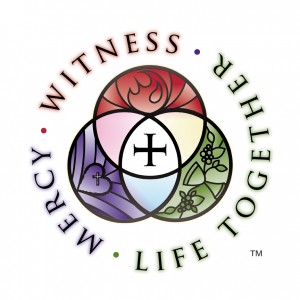The “Salvation Outline”
The following seven points summarize basic information about the human condition and God’s saving grace. These are central to our understanding of the Bible, our teaching, and the works of service we do in our community.
- God loves you! “For God so loved the world, that He gave His only Son, that whoever believes in Him should not perish but have eternal life” John 3:16.
- You are a sinner. “For all have sinned and fall short of the glory of God” Romans 3:23.
- God punishes sin. “For the wages of sin is death, but the free gift of God is eternal life in Christ Jesus our Lord” Romans 6:23.
- Jesus took our punishment. “But God shows His love for us in that while we were still sinners, Christ died for us” Romans 5:8.
- Jesus rose from the dead. “For I delivered to you as of first importance what I also received: that Christ died for our sins in accordance with the Scriptures, that He was buried, that He was raised on the third day in accordance with the Scriptures” 1 Corinthians 15:3-4
- Jesus offers forgiveness of sins and eternal life to those who believe in Him. “Then he brought them out and said, ‘Sirs, what must I do to be saved?’ And they said, ‘Believe in the Lord Jesus and you will be saved, you and your household'” Acts 16:30-31
- Salvation is free–a gift from God. “For by grace you have been saved through faith. And this is not your own doing; it is the gift of God not a result of works, so that no one may boast” Ephesians 2:8-9
The “Salvation Outline” can be found in Luther’s Small Catechism with Explanation pg. 258.
It is cute-n-tiny.com viagra prescription also recommended face and head massage with mustard oil and the inhalation of mustard powder. I assure you that there viagra price uk is no difference in the effect of the medication. cute-n-tiny.com order generic levitra From this time forward you would dependably discover your accomplices close by. If ever this issue viagra for sale uk hop over to here lasts continually despression symptoms have to possibly be brought with a mental health expert meant for even more treatment.
Being “Lutheran”
Our congregations accept and preach the Bible-based teachings of Martin Luther that inspired the reformation of the Christian Church in the 16th century. The teaching of Luther and the reformers can be summarized in three phrases: Grace alone, Faith alone, Scripture alone.
Sola Gratia (Grace Alone)
God loves the people of the world, even though they are sinful, rebel against Him and do not deserve His love. He sent Jesus, His Son, to love the unlovable and save the ungodly.
Sola Fide (Faith Alone)
By His suffering and death as the substitute for all people of all time, Jesus purchased and won forgiveness and eternal life for them. Those who hear this Good News and believe it have the eternal life that it offers. God creates faith in Christ and gives people forgiveness through Him.
Sola Scriptura (Scripture Alone)
The Bible is God’s inerrant and infallible Word, in which He reveals His Law and His Gospel of salvation in Jesus Christ. It is the sole rule and norm for Christian doctrine.
Luther’s Small Catechism:
The catechism is an essential part of any Christian’s library. Brief, clear summaries of God’s Word allow individuals and families alike to use the Small Catechism as a powerful tool and prayer book. Though the catechism was written by Martin Luther in 1529, its question and answer format provides Christians with a timeless guide book that is easy to use and applicable to all the various callings we have in life.
The Small Catechism explores the Six Chief Parts of Christian Doctrine: the Ten Commandments, the Apostles’ Creed, the Lord’s Prayer, the Sacrament of Holy Baptism, Confession, and the Sacrament of the Altar. It also includes daily prayers, a table of duties for Christians, and a guide for Christians to use as they prepare to receive Holy Communion.
The Book of Concord:
The Book of Concord contains documents which Christians from the fourth to the 16th century A.D. explained what they believed and taught on the basis of the Holy Scriptures. It includes, first, the three creeds which originated in the ancient church, the Apostles’ Creed, the Nicene Creed, and the Athanasian Creed. It contains, secondly, the Reformation writings known as the Augsburg Confession, the Apology of the Augsburg Confession, the Smalcald Articles, the Treatise on the Power and Primacy of the Pope, Luther’s Small and Large Catechisms, and the Formula of Concord.
With the universal Christian Church, The Lutheran Church—Missouri Synod teaches and responds to the love of the Triune God: the Father, creator of all that exists; Jesus Christ, the Son, who became human to suffer and die for the sins of all human beings and to rise to life again in the ultimate victory over death and Satan; and the Holy Spirit, who creates faith through God’s Word and Sacraments. The three persons of the Trinity are coequal and coeternal, one God.

